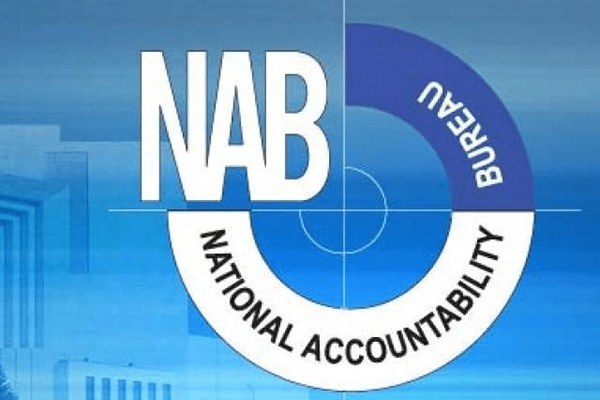
File photo
In statement, global watchdog urges authorities to act in accordance with Supreme Court ruling against anti-graft body
Authorities in Pakistan must act in accordance with last month’s Supreme Court ruling on the actions of the National Accountability Bureau (NAB) and should stop using the anti-graft watchdog to detain government critics, Human Rights Watch said on Thursday.
In a statement, the global rights body also urged authorities to probe and prosecute NAB officials found guilty of unlawful arrests and other abuses. “On July 20, 2020, Pakistan’s Supreme Court, in an 87-page decision, ruled that the National Accountability Bureau had violated the rights to fair trial and due process in the arrest of two opposition politicians, Khawaja Saad Rafique and Khawaja Salman Rafique, whom the NAB detained for 15 months without reasonable grounds,” read the statement, noting that the ruling had not only granted bail to the two men but had also slammed NAB for “trampling” fundamental rights
“The Pakistani Supreme Court judgment is just the latest indictment of the NAB’s unlawful behavior,” said Brad Adams, Asia director at Human Rights Watch. “Pakistani authorities should stop using a dictatorship-era body, possessing draconian and arbitrary powers, to intimidate and harass opponents.”
The Human Rights Watch statement urged Pakistan’s Parliament to enact reforms to make NAB an independent body, highlighting the Supreme Court’s concern about the use of NAB as a tool of political engineering. “The court cited a February report by the European Commission that criticized the NAB for bias, noting that ‘very few cases of the ruling party ministers and politicians have been pursued since the 2018 elections, which is considered to be a reflection of NAB’s partiality,’” it read, adding that the Supreme Court Bar Association and the Pakistan Bar Council had welcomed the ruling.
Acknowledging that NAB was empowered with unchecked powers of arrest, investigation and prosecution under an ordinance promulgated by Gen. Pervez Musharraf in 1999, Human Rights Watch said the Supreme Court ruling had commented on its arbitrary use of powers of arrest.
Summarizing some of NAB’s worst abuses in recent years, Human Rights Watch said it had arrested Mir Shakilur Rehman, editor-in-chief of the Jang group, on charges relating to a 34-year-old property transaction; summoned former president Asif Ali Zardari to appear in person to record a statement, denying his request to record a statement through a video link because of his ill-health and COVID-19; had its detention centers described as “torture cells” by Dr. Mujahid Kamran, the former vice-chancellor of the Punjab University; and was believed to be responsible for the December 2018 death of Mian Javed Ahmed, a professor at the University of Sargodha, while he was in its custody.
“Pakistani authorities should uphold the government’s human rights obligations,” said Asia director Adams. “Pakistan’s Parliament should amend or repeal the NAB ordinance to ensure that the principles of fair trial, due process, and transparency are not compromised on the pretext of accountability.”
